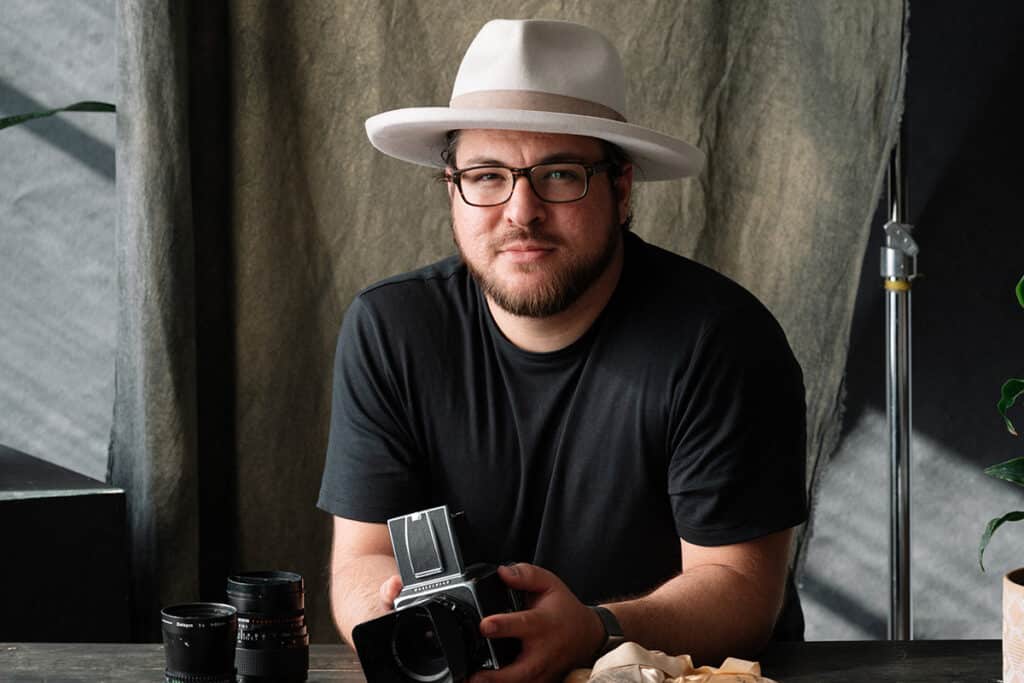Catherine O’Gorman spent most of her early adult life getting some distance from San Antonio — only to decide that home and her first-ever professional interest were right for her after all. O’Gorman, who graduated from Alamo Heights High School, went on to earn degrees in economics at Harvard and Oxford universities, then worked for one of the largest corporations in the world, where a single pricing decision she made could have an impact worth millions of dollars.
After some big decisions and more than a few big moves, she’s now founding president of Bonus Points, a tutoring service for students of all ages that also provides college counseling for high school seniors. O’Gorman works out of the home she shares with husband David Barranco, sets her own hours and has expanded her business to include other tutors to cover a broad range of subjects. Though she has been tutoring off and on since high school, O’Gorman didn’t make it her profession until she founded Bonus Points in 2005. Her focus has shifted from the national economies and corporate financials to the progress of individual students. In tutoring, she says, “I’ve found my calling. I love seeing kids who are getting (grades in the) 30s and 40s bring in 95s within a relatively short period of time. This is so much more meaningful to me than business.” O’Gorman first became involved in tutoring because she was such a good student herself. At Heights, she was debate team captain, belonged to the Pep Squad and dance teams as well as “a bunch of clubs, as an officer in a lot of them,” graduating in 1998 as a National Merit Scholarship finalist. During her senior year, O’Gorman took Advanced Placement chemistry, and her teacher suggested that students who needed help in the subject call her with questions.
Because it had been her ambition since childhood to attend Harvard College, she applied for early-decision admission to the top-ranked school, got in and never filled out another college application. Not surprisingly, her choice worked out well for her. “I knew Harvard had history and traditions as well as a quality education, with students you could learn from,” says O’Gorman. “You can study down by the river in Cambridge, and in 10 minutes you can be in Boston, having Ethiopian food or going to the ballet.” At Harvard, O’Gorman remained an outstanding student, making the Dean’s List each semester and graduating magna cum laude. She also was asked to be a teaching assistant in economics at the Harvard Summer School before her junior and senior years. The experience “was like a light bulb going on in my head,” she says. “It reminded me how much I enjoy teaching, not just learning and doing. As I was grading papers, I’d see my words and examples coming back to me.” Once she overheard a student correcting another student’s error, “using logic I had taught her,” O’Gorman remembers. “I realized I could do more than numbers (in economics classes), I could change the way students think and see the world.”
After graduation in 2002, she pursued a master’s degree in economics at Oxford University. Although she had thought of working on Wall Street, her class was the first to graduate after Sept. 11, 2001. “Firms had stopped recruiting,” she says. “It was a good time to go to graduate school. And I wanted further education in economics; it was a challenge to see how far I could take it.” Because the system of higher education is different in the United Kingdom, this Harvard honors graduate found herself with some catching up to do. At Harvard, she had taken courses not only in economics but in subjects such as evolutionary biology, Carolingian history and Chinese society. Students who had done their undergraduate work at Oxford or other UK universities, O’Gorman learned, “specialize very early. My UK fellow classmates knew nothing of Dickens, Shakespeare, the Iliad or Romeo and Juliet, but they knew a lot about economics because they had focused on it exclusively.” It took “some elbow grease” to make up the difference, she says, “but with lots of reading, lots of note cards and time in the library, you get it done.” After two years in England, “through dreary winters and beautiful summers,” O’Gorman “developed an affection for tea,” but decided not to stay for third year to earn a doctorate. “I didn’t know whether I wanted to go into academia, so I went into the business world, thinking I could always go back (to graduate school.)” Instead, she went to Wal-Mart headquarters in Bentonville, Ark. “It was an economist’s playground,” O’Gorman says. “I was working 90 hours a week, but that was fine, because I loved it. It was neat to see my economics at work, and it made me a believer to see them in action.”
She also appreciated the company’s strong culture. “You could still feel the presence of (late Wal-Mart founder) Sam Walton,” she says. “There was a Saturday morning meeting where the whole company came, because that’s what Sam did.” Facing important decisions, “Everybody asked, ‘Is this the way Sam would have done it?’”
While O’Gorman enjoyed living in the “big, lush, green Ozark mountains,” Bentonville was two-and-a-half hours away from the nearest big city, Tulsa, “and it wasn’t that big.” After two years at Wal-Mart, she says, “I had to decide what’s important. When I was younger, I thought it was living in Boston or New York, maybe working on Wall Street, but after a while, I needed to come home, to be where my roots are.”
Back in San Antonio, she went to work for a multimillion-dollar corporation as a senior vice president, “with a lot of responsibility right from the start.” At the same time, O’Gorman was tutoring again, at the request of family friends, she says, “and that got me thinking about focusing more on teaching.” Three years ago, she left her corporate job to teach high-school mathematics at TMI — The Episcopal School of Texas. In classroom teaching, she says, “You’re still teaching the same material as you would in tutoring, but some students are afraid to speak up and ask questions. I’ve found that with (classroom) teaching, it’s harder to reach some students because they worry more about the impression they’re making on their peers.” While teaching at TMI, O’Gorman was still tutoring. In a one-on-one situation, she says, “You can tell students, ‘Ask me anything, however stupid or brilliant you think it might be.’ It takes a while to build up that trust with a student, but when they feel comfortable enough to ask, it’s magical.” In tutoring, she adds, “You can spend more time on whatever the student needs and adjust your teaching to what they’re curious about. Tutors can adapt completely to that student.” Recognizing her preference, she left classroom teaching after a year and starting working full-time on Bonus Points. Having been blessed previously with high-responsibility positions that gave her a great deal of independence, she felt ready to commit to her own business. “I didn’t have supervisors checking me off,” she says. “My supervisors let me make my own decisions and supported me in them, so decisions don’t faze me.” As principal of Bonus Points, O’Gorman herself still tutors mostly math and chemistry; with other tutors she has hired, the service covers “the whole gamut of math from elementary school through calculus, (as well as) chemistry, physics, statistics, history, literature, writing and Spanish.” The tutors also work with students preparing for standardized tests such as the ISEE (for private-school admission), SAT, ACT and LSAT (for law-school admission).
With associates, O’Gorman also works on the college-counseling side of the business. To help students narrow down their choices, she devised a 100-item questionnaire. When students fill out the survey, “We use those answers to help them arrive at a list of schools that fit their preferences.” She and another staff member also work with students writing personal essays for college applications, “brainstorming different approaches with us.” Faced with a blank screen, students sometimes freeze. “It helps to have a conversation where you talk about your life, what you’ve done and what you’re interested in,” she says. When students have written their essays, “We teach them how to edit, to get their word count down or to polish their essays.” Selecting a college and marketing yourself for admission, says O’Gorman, is “one very personal economic approach” to a life choice. “It’s amazing how economics plays a role in everything from complex situations like the economy of the United States to personal decisions.”
Although her education might have prepared her to become a financial master of the universe, working at the highest levels of banking or public policy, she is happy with her own choices. Because most of her clients are in school or at work during the day, she says she works “reverse business hours,” meeting with students in the late afternoon or early evening. O’Gorman prefers tutoring at home because it eliminates travel time, so she can see more students. Also, “It removes the student from home distractions, like dogs and siblings and phone calls, so that they’re able to get down to work.” Her hours also give her time to participate in organizations such as the local Harvard Club, of which she’s vice president for programming; the Monte Vista Garden Club, where she’s treasurer; and the Military-Civilian Club. While she tutors, her husband, attorney David Barranco does research or watches a Spurs game. When she’s finished for the day, the couple make and eat dinner together. They met while hanging out with friends, when he challenged her to a shuffleboard game. “He tells me he let me win, so I would demand a rematch,” she says, smiling.
Though she would like to hire more tutors to expand her business, “I don’t think I’ll ever stop tutoring,” she says. College and graduate school friends of hers have gone the master-of-the-universe route, “and I wish them well,” she says, “but I’m so happy I get to have lunch with my dad, hang out with my mom, play fetch with our dogs, help these wonderful kids and be in this town.”
Not long ago, O’Gorman received a text from a student who got an A for the first time on a chemistry test. “Moments like that give more meaning to your life than just dollars,” she says. “I don’t regret any of my decisions; I just wish I’d figured it out sooner, so I could have saved some moving expenses.”





One Response
5